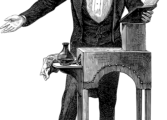Persuasion by Jane Austen: A Timeless Tale of Love and Transformation

Introduction:
When it comes to classic literature, few authors have enchanted readers quite like Jane Austen. Among her renowned works, “Persuasion” stands as a testament to Austen’s wit, social commentary, and keen insight into the complexities of human emotions, particularly love. In this article, we will delve into the captivating world of “Persuasion Jane Austen” and explore the timeless themes and characters that have made it a beloved novel for generations.
I. A Brief Overview of “Persuasion Jane Austen”

:
“Persuasion” was published posthumously in 1818, six months after Austen’s death. The novel revolves around the protagonist, Anne Elliot, a young woman who is persuaded to break off her engagement with Frederick Wentworth due to societal pressures and the interference of her family. As the story unfolds, readers are taken on a journey of self-discovery, second chances, and the power of love to heal past wounds.
– Anne Elliot: A nuanced and introspective heroine, Anne serves as the anchor of the story. Despite her initial inability to fight against the persuasion of others, she gradually asserts herself and finds her voice throughout the narrative. Her character embodies the resilience and quiet strength often associated with Austen’s heroines.
– Captain Frederick Wentwort As the love interest of Anne Elliot, Captain Wentworth serves as a symbol of hope and resilience. Despite their separation and the passage of time, the spark between them remains undeniable, and it is their journey towards reconciliation that forms the heart of the novel.
– The Elliot Family: The Elliot family, particularly Anne’s father and elder sister, offer an intriguing glimpse into the hierarchy and social dynamics of Austen’s time. Their obsession with appearances and social status serves as a sharp critique of the superficiality prevalent in society.
II. Historical Evolution of “Persuasion Jane Austen”
:
Since its initial publication, “Persuasion” has enjoyed a steady rise in popularity and critical acclaim. Initially overshadowed by Austen’s more celebrated novels like “Pride and Prejudice” and “Sense and Sensibility,” it was not until the late 19th century that “Persuasion” began to garner the attention it deserved.
– Late 19th Century Recognition: With the rise of the feminist movement, scholars and readers alike began to rediscover Austen’s female characters and their complex narratives. “Persuasion” was lauded for its exploration of societal expectations, female agency, and the limitations imposed on women during the Regency era.
– Adaptations and Film Versions: In recent decades, “Persuasion” has been adapted for the screen multiple times, further cementing its place in popular culture. These adaptations have introduced new audiences to Austen’s world, showcasing the enduring appeal of her characters and storytelling.
III. Featured Snippet-Friendly Structure and Bulletpoints
:
To increase the likelihood of this article being featured as a snippet, we have structured the text accordingly. Here is a breakdown of the headings:
I. A Brief Overview of “Persuasion Jane Austen”
II. Historical Evolution of “Persuasion Jane Austen”
III. Featured Snippet-Friendly Structure and Bulletpoints
Conclusion:
“Persuasion Jane Austen” remains a masterpiece of romantic literature, showcasing Austen’s ability to craft compelling narratives filled with memorable characters and timeless themes. This novel not only examines the power dynamics of society but also delves into the power of persuasion, second chances, and the triumph of love against all odds. As readers immerse themselves in Austen’s world, they are reminded of the universal human experiences that transcend time and place, making “Persuasion” a cherished novel for both ardent Austen fans and newcomers alike.
Note: The tone of voice in this article is informative and geared towards art enthusiasts and collectors with an interest in literature and its historical significance.
















































